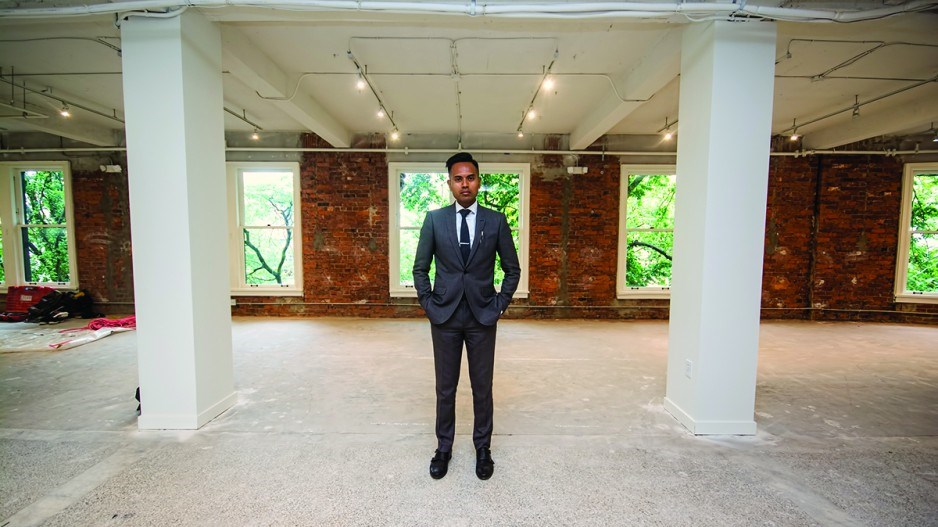Tech companies, WeWork and protracted development times are squeezing Metro Vancouver’s supply of office space.
The result is a record-low vacancy rate, which means limited options and rapidly rising lease rates for businesses, according to Avison Young’s recent mid-year report on Metro Vancouver’s office market.
The report notes the situation risks constraining company growth and could deter companies from establishing or expanding operations in the region.
“It’s a different environment than we’ve ever seen before,” said Avison Young principal Glenn Gardner, who specializes in downtown office leasing.
He references the term “structural vacancy,” where market ebbs and flows, and the fact that companies have to vacate properties to move into new ones, mean the vacancy rate will hover above zero, roughly around 2%.
Metro Vancouver’s office vacancy rate now sits at 4.3%, which is 8.5% tighter than the region’s previous record low of 4.7%, set at the end of 2007.
The rate in Vancouver’s downtown core specifically sits at a tight 2%. Class AAA office space vacancy has plummeted to 0.7% from 2.6% half a year ago, and from 6.9% year-over-year.
“It really is a point where it almost can’t go any lower,” said Gardner. “Any movement from this point is even more significant than the movement down previously.”
Behind a skyline littered with cranes, there is new supply on the horizon, but it won’t bring quick relief to record-low vacancy rates.
New developments downtown expected to be completed by 2020 are already fully leased, according to market intelligence from CBRE Ltd. Of the 3.8 million square feet slated to reach the market by 2024, the report notes that nearly half (48.5%) is committed, but Jason Kiselbach, senior vice-president and managing director of CBRE’s Vancouver office, says that number is now closer to 60% or 70%.
Of the spaces under pre-lease agreements that have been announced, an estimated 70% constitute net new absorption.
“A lot of the demand is from high-tech companies taking large chunks of space, as well as a lot of international tech firms,” said Marc Saul, principal at Corbel Commercial Real Estate Services Inc.
Tech firms dominate CBRE’s list of the most significant prelease deals in the second quarter of this year.
Vancouver-based biotech company Zymeworks Inc. (TSX:ZYME) struck a deal for 67,300 square feet in the Broadway corridor, Apple Inc. (Nasdaq:AAPL) has secured 44,630 square feet downtown and Slack Technologies Inc. (NYSE:WORK) has pre-leased 34,144 square feet downtown.
WeWork also closed a pre-lease deal for 170,000 square feet of space in BentallGreenOak’s B6 tower on West Pender, slated to be completed in the second quarter of 2023.
According to Avison Young’s report, the co-working giant has signed deals for more than 360,000 square feet of space in Burnaby and Vancouver in the first two quarters of 2019.
Last year, co-working companies such as WeWork, Spaces and Regus Canada were responsible for 8.4% of Downtown Vancouver office space demand. On a 10-year annual average, they account for just 3.4% of space leased per year. Companies in tech, by comparison, are responsible for nearly a quarter of all office space leased downtown (24.2%), followed by firms in finance (18.3%) and law firms (12.4%).
Saul says large international firms are primarily the ones paying higher rent, which has placed price pressure on smaller spaces in areas such as Gastown.
“We’re breaking the $50 a foot net threshold – rates that three, four years ago I really didn’t think we would be seeing, and now we’re hitting them,” he said.
Higher rents, along with old zoning bylaws and land-use issues in areas such as Railtown, have made it difficult for local high-tech firms to find space.
“I keep going back to ice manufacturing. That’s an outright approved use that can go in no problem, whereas another I’d say high-tech firm would still need to get conditionally approved by the city.”
Along with higher fixed costs, CBRE’s Kiselbach says the fact the market favours landlords is affecting average lease lengths.
In general terms, where five-year leases were available a year or two ago, he says landlords are now pushing for seven- or 10-year deals.
“If you’re a new business getting started, trying to project growth, you want flexibility so you’d prefer a three- or a five-year term,” he explained. “Landlords are being as aggressive as possible on the length of term that they want, the creditworthiness of tenants and definitely pushing rental rates.”
Office space markets in other Metro Vancouver cities have more room to breathe and offer businesses more options, but available space is shrinking. (Kiselbach says the vacancy rate in suburban markets has fallen to 6.1% from 6.7%.)
Avison Young data shows that Surrey, for example, has a 7.1% vacancy rate, down from 9.6% a year ago. In Burnaby, it has fallen to 5.7% from 7% in mid-2018.
Demand for space in other regional city centres is primarily driven by demand for space in those areas, and not because space can’t be found in Vancouver, says Gardner.
Some businesses, however, may be forced to search for options outside of B.C.’s largest downtown core.
Avison Young reports the lag until new buildings complete has led to “severely constrained market conditions” that are expected to persist until 2021, and likely into the first half of 2022. Gardner expects downtown leasing options to continue to creep lower over the next 24 months.
Companies have to get creative, he said, and give themselves enough time to meet their space needs.
“I would be very surprised if we saw a huge exodus from downtown to the suburbs because of where vacancy is. Will we see some? For sure, because some tenants will just have to look at other alternatives.”




